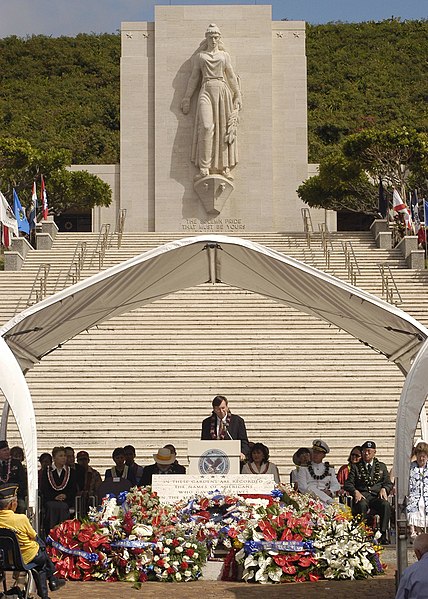This humble blogger was a bit taken aback when he read a statement from fellow Hawai‘i political pundit Colin Moore about how unstable this election year has been with the moving around of candidates to different offices.
Moore, who is the director of the University of Hawai‘i’s Public Policy Center, said “I can’t remember a race this late in the game with one major (gubernatorial) candidate exiting and potentially another major candidate entering,” according to this piece in the Star-Advertiser on May 5th.
Well, it’s happened before Mr. Moore.
To catch up with the reader on what is happening, on May 4th, 2022, Kirk Caldwell, former Mayor of the City and County of Honolulu, announced that his campaign for the governorship was coming to an end. The significance of this move, in the eyes of some like Moore, is that this is coming so late in the process, with the primary election in Hawai‘i to be called in 100 days.
Not to go into the reasons why it’s become turbulent at this time – that will be reserved for another piece in another time – the fact is that 20 years ago, this month to be exact, similar activities happened to leave Hawaii voters with whiplash on how fast things moved.
IN EARLY 2002, the Chinatown bookies had then-Mayor of Honolulu, Jeremy Harris, with a comfortable lead going into the primary, and then general, election for Hawai‘i’s governor in the 2002 polls. It had been known for a while that Harris was gunning for the office, to be the one that broke the “curse” if you will that no Honolulu Mayor would ever win to be Governor of the State of Hawai‘i.
But through a series of events, including a lawsuit that stopped his campaign for a couple of months, there was a growing sense that the likelihood of Harris sailing into the fifth floor of the State Capitol was becoming less and less likely. At the time, as political historians who read this knows, an upswelling of support for the Republican candidate for Governor, Linda Lingle, was one of several headwinds Democratic candidates were facing going into this election.
Those headwinds included corruption charges against Harris, a slew of indictments and jail sentences for Honolulu City Council members and state legislators, and lingering fallout from the “Broken Trust” saga that took down the trustees of Kamehameha Schools/Bishop Estate – who were highly connected to the political apparatus in Hawai‘i – and just an overall sense of malaise as the state entered the new millennium.
This dissatisfaction with the Hawai‘i electorate was best described in a New York Times article, written by B. Drummond Ayres Jr. about the turbulent nature of the 2002 poll,
“They face accusations that they have mismanaged the state’s economy, ignored the needs of its schools, padded the bureaucracy, and turned a blind eye to corruption. In recent years, as more and more independents have moved into the state and island customs have begun to break down, fractures have begun to show in the Democratic base, a once-solid bloc of Japanese-Americans, government employees, and unionized workers.”
Sound familiar? Again, another piece will talk about this angle of the 2022 election.

PC: U.S. Navy photo by Photographer’s Mate 1st Class Robert C. Foster Jr. File:US Navy 040531-N-8157F-055 The Statue of Columbia overlooks Honolulu Mayor Jeremy Harris as he speaks to an audience of hundreds during the annual Mayor’s Memorial Day Ceremony at The National Memorial Cemetery.jpg – Wikimedia Commons
Because Harris, up until May, was telling his supporters he was in it to win it, other more-traditional successors for the Governorship had changed their plans. Most notably was (now Senator) Mazie Hirono, who was Lieutenant Governor of the state. She viewed her chances of winning the governorship as weak, and so bounced to the Mayor’s race when it looked like Harris was going to go all-in for the Governor’s race, is that he looked like the stronger horse that could take on Lingle, the Republican candidate.
But with the aforementioned corruption issues that plagued his administration, the lawsuits that dogged him for even running while Mayor, and a feeling that maybe he was not what Hawai‘i wanted, Harris made a big move to withdraw from the race at the end of May 2002. In his statement he made it known that there were issues of support and that winning was less a foregone conclusion.
That move came on May 30, 2002. In comparison, it feels like Caldwell was quicker with his decision, having done it on the 4th, but still trying to hold out electoral hope that never came.
The whiplash that occurred right after was in the form of Mazie Hirono dropping her Mayoral pursuit and going back, again into the governor’s race. This happened mere hours after Harris dropped out. Nobody in the political realm could quite make out what was happening, since before all this it was (almost) a foregone conclusion by this time that the Lieutenant Governor would sail into the primary (opposed but by very weak candidates) and then take out the Republican.
It was a new world of electoral politics that the Hawai‘i of 2002 had witnessed, of which in 2022, we are seeing a very similar script play out. As with Harris, Caldwell has been dogged by the nature of his decisions, his declarations of things (like rail) being better than they are, and an overall feeling of, as former blogger Bob Jones described him in a piece during the pandemic, “Caldwell’s Oahu orders had became confusing, contradictory and confounding.”
And as with what happened in 2002, we are already experiencing a whiplash of candidates changing offices (Tokuda: Lt. Governor to Congress; Tommy Waters: City Council member to Congress; Kai Kahele: Congress to may be a run for Governor).
So, stay tuned, and try to keep your eye on the ball without becoming dizzy.
And as a final to this piece – I forgive Moore for not knowing about this history, it’s not talked about a lot, even back when it happened.
